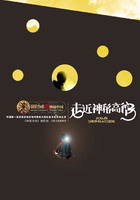is not everywhere the same: hence the processes by which they come-to-be must be 'irregular' too, i.e. some too quick and others too slow. Consequently the phenomenon in question occurs, because the 'irregular' coming-to-be of these things is the passing-away of other things.
Coming-to-be and passing-away will, as we have said, always be continuous, and will never fail owing to the cause we stated. And this continuity has a sufficient reason on our theory. For in all things, as we affirm, Nature always strives after 'the better'. Now 'being'
(we have explained elsewhere the exact variety of meanings we recognize in this term) is better than 'not-being': but not all things can possess 'being', since they are too far removed from the 'originative source. 'God therefore adopted the remaining alternative, and fulfilled the perfection of the universe by making coming-to-be uninterrupted: for the greatest possible coherence would thus be secured to existence, because that 'coming-to-be should itself come-to-be perpetually' is the closest approximation to eternal being.
The cause of this perpetuity of coming-to-be, as we have often said, is circular motion: for that is the only motion which is continuous.
That, too, is why all the other things-the things, I mean, which are reciprocally transformed in virtue of their 'passions' and their 'powers of action' e.g. the 'simple' bodiesimitate circular motion.
For when Water is transformed into Air, Air into Fire, and the Fire back into Water, we say the coming-to-be 'has completed the circle', because it reverts again to the beginning. Hence it is by imitating circular motion that rectilinear motion too is continuous.
These considerations serve at the same time to explain what is to some people a baffling problem-viz. why the 'simple' bodies, since each them is travelling towards its own place, have not become dissevered from one another in the infinite lapse of time. The reason is their reciprocal transformation. For, had each of them persisted in its own place instead of being transformed by its neighbour, they would have got dissevered long ago. They are transformed, however, owing to the motion with its dual character: and because they are transformed, none of them is able to persist in any place allotted to it by the Order.
It is clear from what has been said (i) that coming-to-be and passing-away actually occur, (ii) what causes them, and (iii) what subject undergoes them. But (a) if there is to be movement (as we have explained elsewhere, in an earlier work') there must be something which initiates it; if there is to be movement always, there must always be something which initiates it; if the movement is to be continuous, what initiates it must be single, unmoved, ungenerated, and incapable of 'alteration'; and if the circular movements are more than one, their initiating causes must all of them, in spite of their plurality, be in some way subordinated to a single 'originative source'. Further (b) since time is continuous, movement must be continuous, inasmuch as there can be no time without movement.
Time, therefore, is a 'number' of some continuous movement-a 'number', therefore, of the circular movement, as was established in the discussions at the beginning. But (c) is movement continuous because of the continuity of that which is moved, or because that in which the movement occurs (I mean, e.g. the place or the quality) is continuous?
The answer must clearly be 'because that which is moved is continuous'. (For how can the quality be continuous except in virtue of the continuity of the thing to which it belongs? But if the continuity of 'that in which' contributes to make the movement continuous, this is true only of 'the place in which'; for that has 'magnitude' in a sense.) But (d) amongst continuous bodies which are moved, only that which is moved in a circle is 'continuous' in such a way that it preserves its continuity with itself throughout the movement. The conclusion therefore is that this is what produces continuous movement, viz. the body which is being moved in a circle;and its movement makes time continuous.















